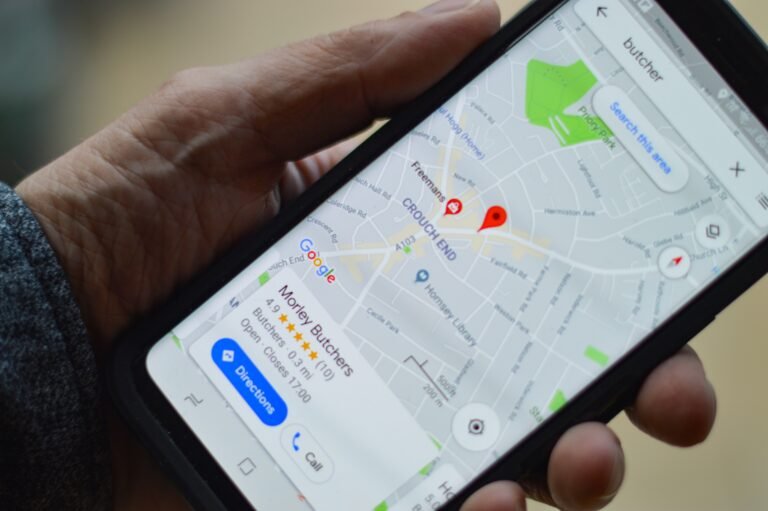Search engine optimisation (SEO) shouldn’t scare any one off. A few simple steps can greatly improve your search ranking and increase your visitors.
If you’ve got a website, you’ve heard of SEO, and how important SEO is to building your SEO score, but what is it and why is it important?
Firstly, a bit of context. In simple terms, there are three main ways that your website will get traffic, and they all serve a purpose and have a role, depending on your business and how people interact with your product. Organic search traffic is just one of them.
SEO is the process we go through to make sure that our site is appealing to Search engines, and will be ranked highly. Principally this relates to google, but the same processes are relevant to Youtube, Bing and others.
In order for your site to be ranked for a specific search, the Site needs to be visited by a bot which crawls your site, works out what the page and site are about and ranks the site based on a range of ever changing criteria. The process that we go through to make sure our site meets these criteria is Search Engine optimisation.
To be clear though, it’s not a magic bullet, competition, time and customer demand/interest will all play a role in search traffic, but these are outside of your control. All you can do is focus on the things in your control and do your best.
What SEO criteria do I want to focus on?
A quick search will return millions of pages talking about the Google algorithm and each of the 3,500 or so things that it looks at, and I’m not going to list them all here, as a small business owner, I doubt you have the patience or time to be that focussed, so let’s just look at the main things.
Google is a research tool first and foremost, and its aim is not to sell advertising, but to give the people searching access to the best possible answer to the question being asked. At a high level, all of the criteria it measures seeks to deliver on this promise.
Google knows that a high proportion or it’s searches are on mobile and are looking for local information. It also knows whether the searcher is looking to buy or looking to learn. It wants to give the best possible answer so it looks for social proof, like links from other relevant sites.
It wants you to provide a good experience to visitors so it’s looking at the usability and speed of your site, plus the way that you guide your visitors around your site.
It also wants you to be a good citizen so it’s also looking at the links out to your site to other, relevant sites and information.
Finally, it wants you to provide an enjoyable experience, so it’s assessing the readability of your article and minimising pop ups and spammy pages.

SEO priorities. How can you maximise your Search ranking.
SEO can be extremely complex, but there are a couple of things that you can do to at least ensure that you’re providing a strong baseline. These are going to be focussed on Google as this is were most of the search activities takes place, but Bing has similar tools if it’s big in your market.
Be seen by Google – Set up Google search console.
There are literally billions of sites on the internet, and similar numbers of new pages benign added to these sites everyday, so it can take time for google to get to a new page, and you want to make sure that, once it gets there, it’s going to be able to find the page and scan it.
Setting up a google search console account, creating a sitemap to your site and adding this to your search console account can improve the speed at this google indexes your content and rtanks your pages. It will also allow you to identify potential problems with your site before they happen.
Page and website loading speed
We are impatient people, and rarely interested in hanging around for answers, hence the time it takes to load a page has a major impact on bounce rates. A slow loading site will not be read, as people will switch off, and will go somewhere else for information.
Whilst hosting can affect this, its most likely that the way your site delivers code to the browser will have the most impact, and this can be fixed relatively easily. Depending on your platform, and whether you use a CDN like Cloudflare, there are a range of tools available to fix this.
Google has a great tool called Pagespeed insights that will measure your speed and let you know what needs to be done to improve it, so it’s a good place to start.
Mobile Optimised
On the subject of speed, a website will perform differently on a mobile, tablet and desktop. Obviously it will look different, but it will also be slower on mobile networks and as the majority of searches are now on mobile, you have to ensure that you optimise your site for mobile.
Your site platform will impact on this, but you need to consider it. If you’re picking a wordpress template for example, make sure it’s Mobile responsive. You can also check what the page looks like on different devices on the customize appearances page.

Location
Similarly, as google now focuses on mobile, geographical searches are more relevant than ever. Google will prioritise local responses over distant ones, and hence your location is now more relevant. This doesn’t come from your domain or IP, they may not be local. Having a Google My Business page set up will let google know where you are and allow it to put your name in front of searchers near you.
Whilst on the subject, Google reviews do seem to affect search rankings, so you might want to think about shifting your testimonials from your website to Google where they can do some good!
Make your content relevant
Search engines work for the searcher, not for the content writer and, like all communications we need to be writing for the audience, not ourselves. In the content marketing world, that means understanding what questions the audience is asking, and giving them content which is relevant to the search.
Audience and customer research will be critical in this, as will understanding the guidance the search engines give, like “people also ask” section on Google.
Key words come into this, but you are much better off answering the long tail questions that are being asked than trying to shoehorn the same keywords in multiple times ( google hates keyword padding by the way)
Content is meant to be read, so make it enjoyable and readable
Ultimately, the audience is a person, not a machine, so, regardless of whether you hit all of the technical metrics, if people don’t enjoy reading your content, they won’t come back or share your content, hence are unlikely to want to engage with your further.
Storytelling approaches are built on 10,000 years of oral history so our subconscious resonates with the approach and allow us to see ourselves in the situation being described and we engage with the writer.
Also, break the page down into relevant sections, with good headers, so that the reader and Google can understand what they are getting.

Not Everyone likes reading
Images, audio and video can be exceptionally good at communicating messages in an entertaining way and can make any article more interesting and engaging. You need to make sure that they are relevant however, and don’;t break the flow of the article, as this can be counter productive.
Also, don’t forget that Google can’t understand images, so you need to include written content and alt-text just to help the search egine understand what your content is about.
Help your audience enjoy the journey
The most difficult thing you do is getting people to your site, so the last thing you want to do is lose them straight away. If they like what you’re writing, give them ways to engage further, through links to related posts or content. Would they be interested in engaging further through subscribing or understanding what you do, make these options available too, but don’t beat them over the head with it!
Most platforms contain widgets or tools that can automate this, but make sure that links are relevant, don’t destroy the flow of your story, and work!
Make the most in inbound and outbound links
The internet is a network of information, it’s not your personal marketing tool, so how you interact with the outside world makes a difference. Google looks for these links to other sites, especially those linking to your site, as social proof of the quality of your content. You should include links to other sites to allow people to delve deeper into a subject. Don’t worry about losing them, if your content is good they will come back.
More important now are Backlinks, links from other well respected sites to your pages, as this acts a bit like a peer review and demonstrates the credibility of your site’s content in the eyes of others. These are difficult to get, but there are approaches you can take, including guest blogging which can raise your exposure and increase your domain authority.
Remember who you are writing for.
SEO is important and will impact on your search rankings, and therefore the level of traffic coming to your site. However, people read your content, not machines, so you won’t go far wrong by focussing on writing content that people want to read! Understand what your audience wants to know, and make sure that you provide them with this information in the best way that you can!


